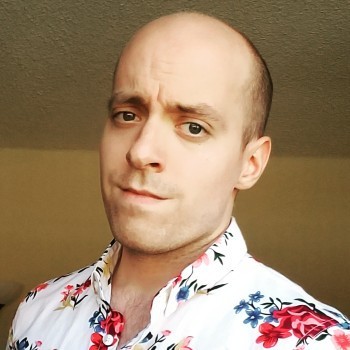This developer made a game about her parents' jobs as spies
Cosmic Top Secret is a papercraft exploration of the Cold War from a child's perspective.
"Wait, Dad, were you a spy?"
As a child Trine Laier was awed whenever her father said he was leaving to work at a "secret fortress deep underground." By the age of 13, Laier knew her father, a typically stocky, salt-and-pepper-haired man, worked on DASK, the Danish government's first computer, all under the direction of Danish Defense Intelligence Service. Like so many other children of the Cold War era, the thick tension connecting East and West was just another part of her normal adolescence.
But it wasn’t until years later, while studying as a film school student, that Laier happened to be digging through her parents' belongings and discovered a piece of punched tape labeled 'CTS'. Cosmic Top Secret, she'd learn, was the highest ranking for material owned by NATO allies, the disclosure of which was considered a grave threat to the international organization. What resulted was a seven-year journey to discover the true nature of her father's career—and her mother's, working for a different department—capture it in a videogame, and perhaps understand her parents more than she ever thought possible.
“We all have this feeling with our parents that they lived this secret life," Laier says. "No matter if they're agents or whatever, we just don’t know in detail what their work is about."
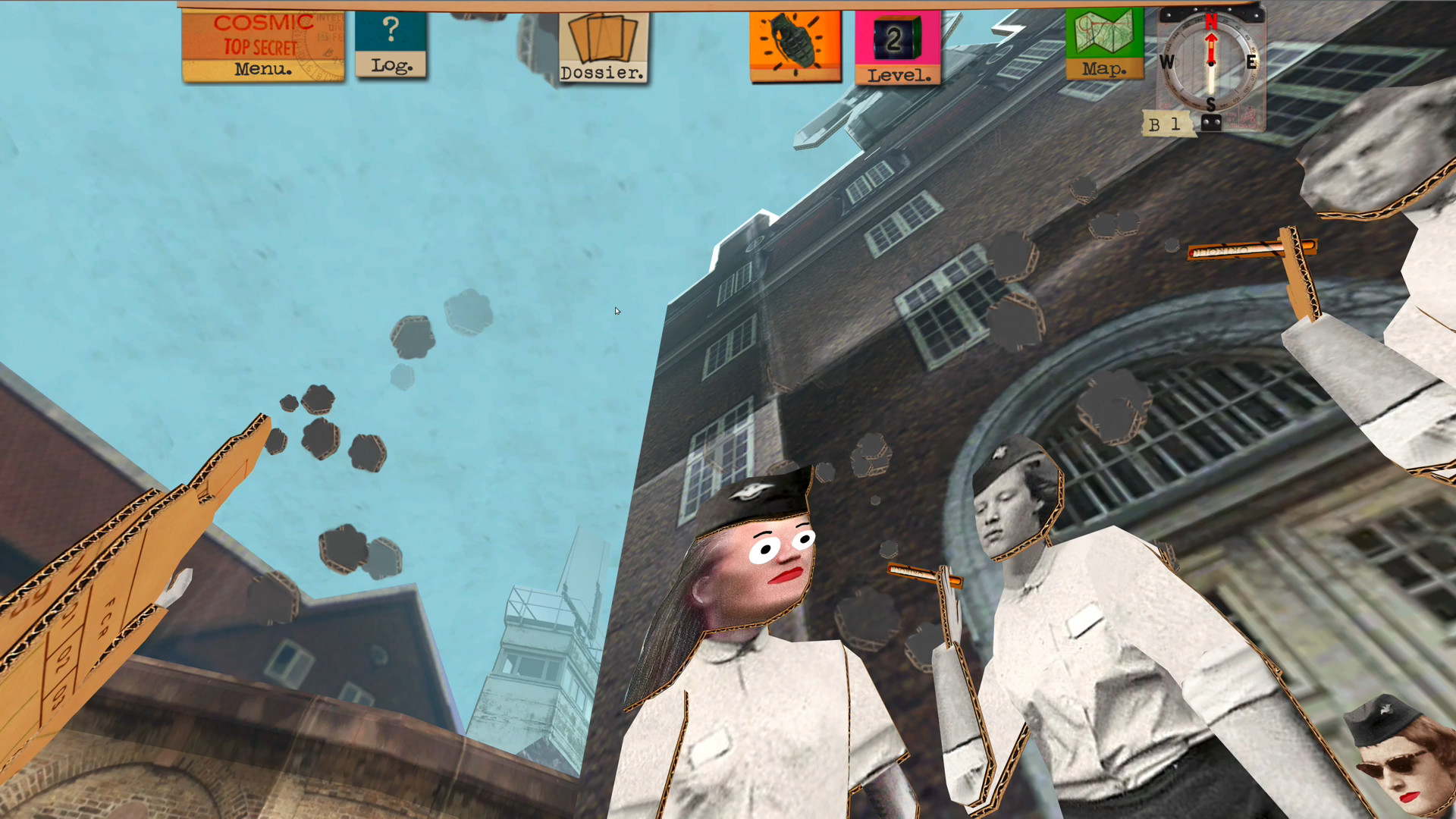
Cosmic Top Secret the game is an interactive documentary and a history of its own creation, interlaced with audio and video recordings of Laier prodding her father for answers in the way only a child could. The heavy breathing of a woodland orienteering session interspersed with casual mentions of her research, car rides where Dad is more focused on his daughter's driving than state secrets, and bits of awkward laughter when an interview in the living room hits a little too close to home—all feeling familiar to the children of parents who prefer their privacy.
The textures of many objects and areas in the world come from declassified government documents Laier discovered during her research
"[My mother and father] keep thinking that they have to keep this distance in a way, or they have to keep their work to themselves," Laier says. "When I start talking with them, then they forget it and they become very engaged and start to remember details. We have a lot of scenes in the game where we are actually eating because that's when we are talking together in a relaxed sense."
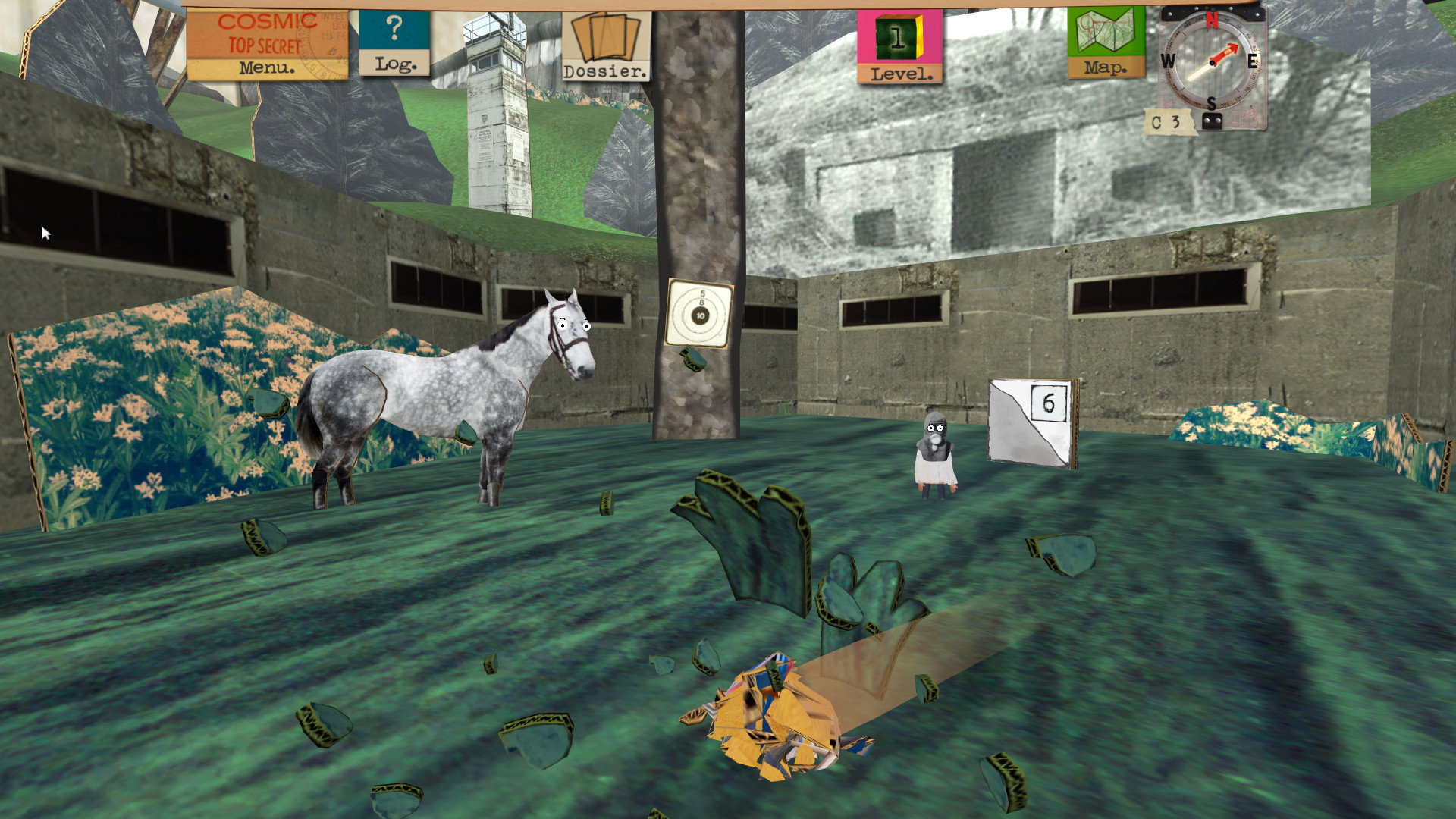
In Cosmic Top Secret walls, trees, and even people are all constructed to look like paper cut-outs. The textures of many objects and areas in the world come from declassified government documents Laier discovered during her research. The paper incarnation of her father has a stocky build, but with comically large arms that make him look almost like a gorilla of a man. As he turns around, his back displays the brown and black markings of a government document, and a label reading 'dad' rests between his shoulders.
Keep up to date with the most important stories and the best deals, as picked by the PC Gamer team.
Each level consists of Laier running (or rather, crumpling into a paper ball and rolling) around an environment made from the documents she discovered. Eventually, Laier moves beyond her parents and onto other members of the Danish Intelligence operations, including a pilot who flew below radar to collect snapshots of military installations. It's all illustrated in a beautiful sequence that sees Laier transforming into a paper plane, flying over a map of Poland, a roiling sea of blue cardboard sheets shifting back and forth like waves.
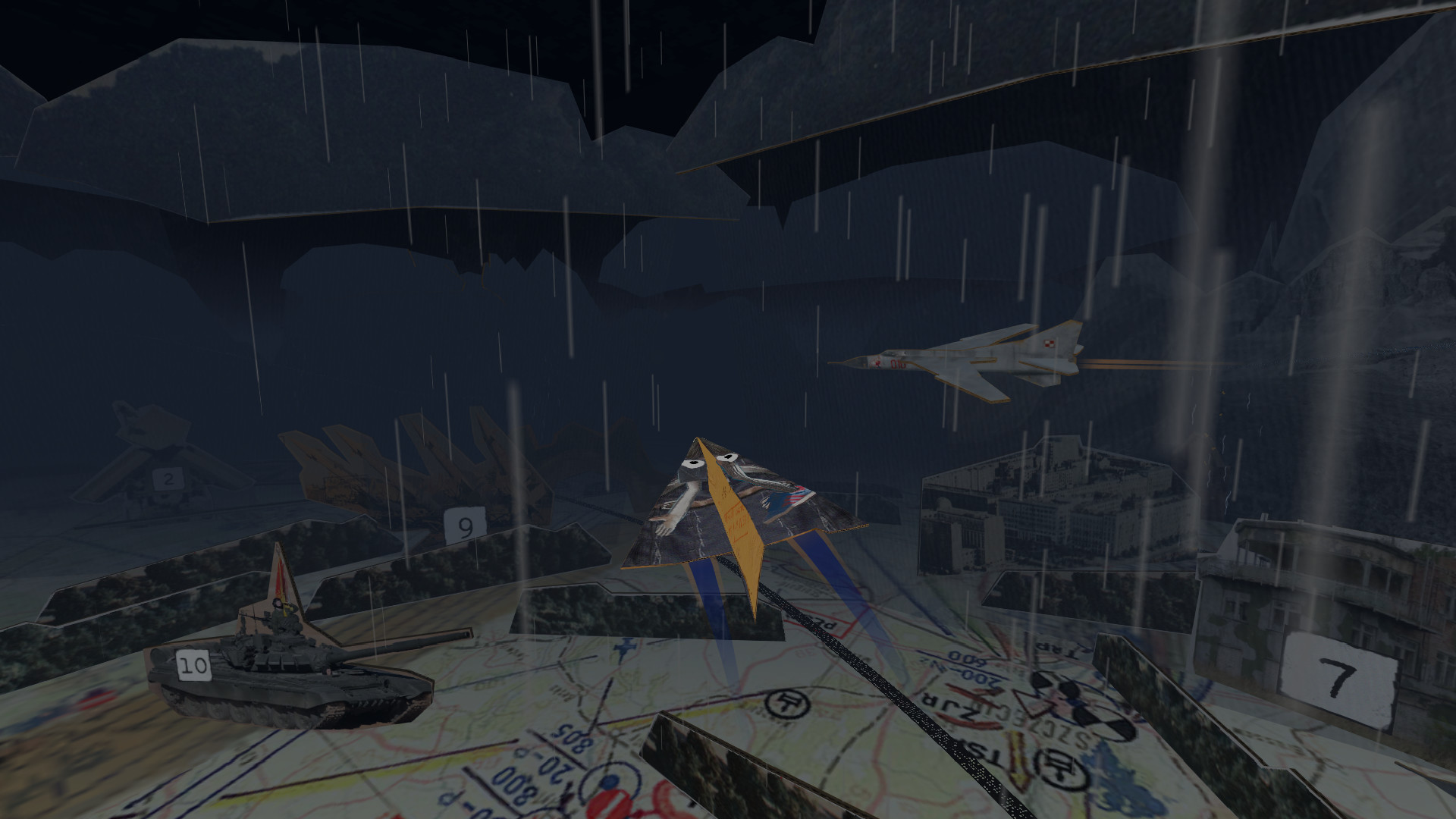
As a member of the Danish Data Historical Association (a weekly gathering of "old men" who repair and explore old computers), Laier's love for obsolete machinery helped establish a connection to her father's work. When equations that her father had worked on were released, it spurred her forward. "It’s like a hunt for the Holy Grail," Laier says.
...it's a grim reminder that our parents—and our heroes—are still mortal
And while Cosmic Top Secret begins as a search for the secret equations and paperwork of her parents' pasts, it's who her parents are as people that will likely strike the hardest. There's no shortage of people who feel like they never truly understood their own parents, or who begin to learn too much for comfort. Maybe it's a matter of political differences, the kinds of morals and ethics you ascribed to someone who once seemed like a superhero starting to crumble. Maybe it's a mistake that's haunted them since long before you were born. Sometimes, it's just the fact that they're getting older, and that their memory will soon only live on through you.
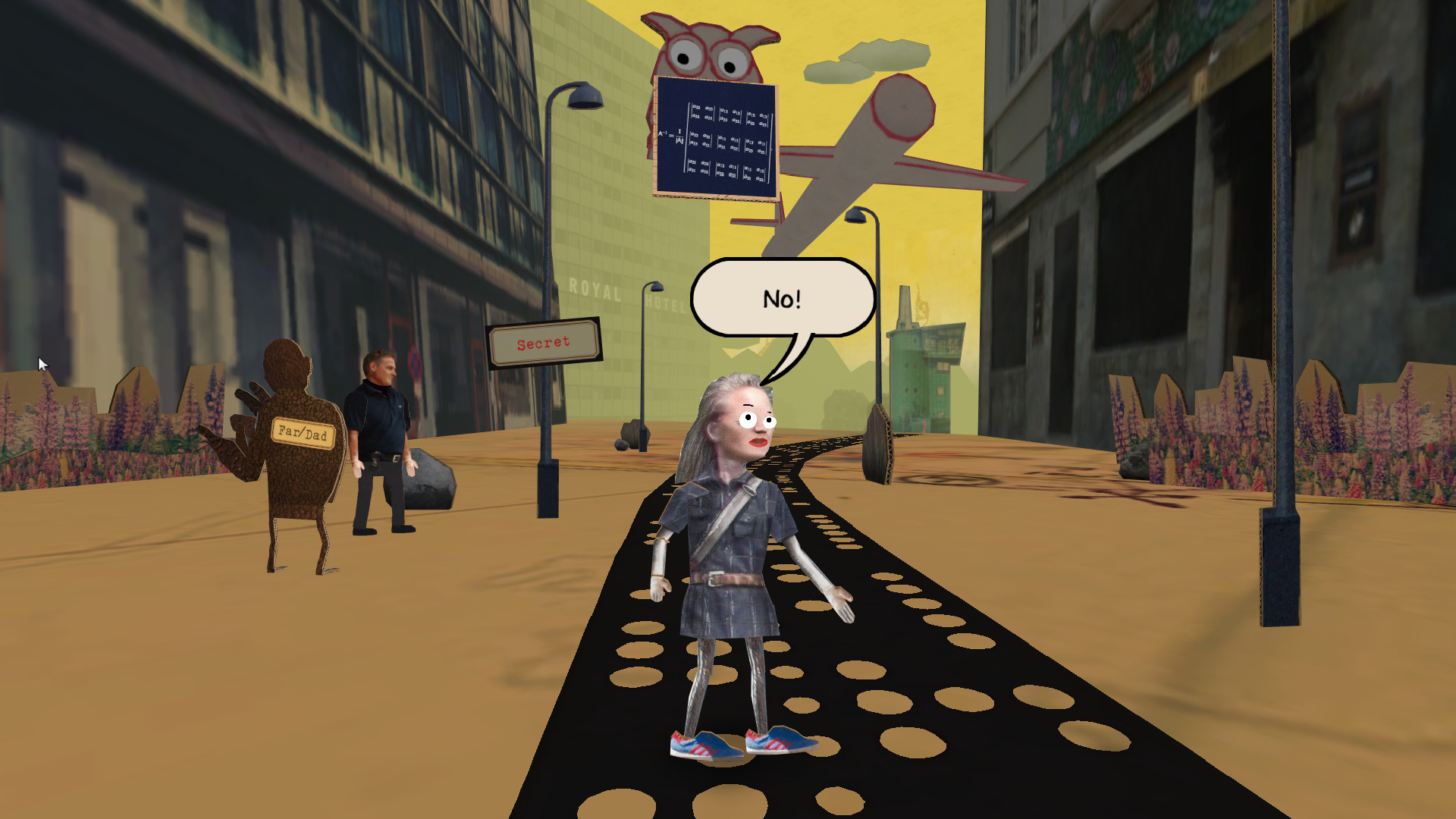
Laier illustrates this by periodically having her father's paper character lose a limb, spurring a search throughout the level to retrieve it. As her father's exaggerated, ridiculous form stumbles without it, it's a grim reminder that our parents—and our heroes—are still mortal.
I'm reminded of my own father, who to my knowledge has only lived a modest life as a trucker, but has also collected countless bits of paper, memorabilia, and photos over the years. One day he will be gone, the joys and miseries he's brought into this world still lingering through his children. When that day comes, I know I will be like Laier, forced to glue myself back together so I can march on, but then will come the hours spent sifting through old junk, piecing together a person I only thought I knew. Laier's parents had secrets that were cosmic, but the experience of learning that your parents had more going on than you ever thought possible is universal.
Joseph Knoop is a freelance writer specializing in all things Fortnite at PC Gamer. Master of Creative Codes and Fortnite's weekly missions, Joe's always ready with a scoop on Boba Fett or John Wick or whoever the hell is coming to Fortnite this week. It's with a mix of relief and disappointment that he hasn't yet become a Fortnite skin himself. There's always next season...
